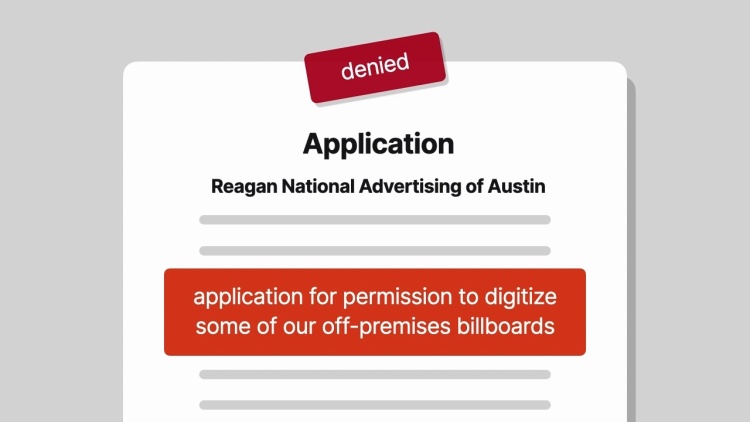City of Austin, Texas v. Reagan National Advertising of Austin
United States Supreme Court
596 U.S. 61, 142 S. Ct. 1464, 212 L. Ed. 2d 418 (2022)
- Written by Salina Kennedy, JD
Facts
The City of Austin, Texas (Austin) (defendant) enacted an ordinance that permitted the digitization of on-premises signs but prohibited the digitization of off-premises signs. On-premises signs advertised things that were located on the same premises as the sign, whereas off-premises signs advertised things that were located on different premises from the premises of the sign. Reagan National Advertising of Austin (Reagan) (plaintiff) applied for a permit to digitize some of its billboards, but Austin classified the billboards as off-premises signs and denied the application. Reagan filed a state-court lawsuit requesting a declaratory judgment that the ordinance’s distinction between on- and off-premises signs violated Reagan’s right to free speech. The case was removed to the United States District Court for the Western District of Texas, which ruled in favor of Austin, reasoning that the ordinance was content neutral. The United States Court of Appeals for the Fifth Circuit reversed, reasoning that the ordinance was facially content based because before a sign could be categorized as on-premises or off-premises, a city official had to read its contents. The court applied the strict-scrutiny standard and held that the ordinance was unconstitutional. The United States Supreme Court granted certiorari.
Rule of Law
Issue
Holding and Reasoning (Sotomayor, J.)
Concurrence (Breyer, J.)
Concurrence/Dissent (Alito, J.)
Dissent (Thomas, J.)
What to do next…
Here's why 910,000 law students have relied on our case briefs:
- Written by law professors and practitioners, not other law students. 47,100 briefs, keyed to 997 casebooks. Top-notch customer support.
- The right amount of information, includes the facts, issues, rule of law, holding and reasoning, and any concurrences and dissents.
- Access in your classes, works on your mobile and tablet. Massive library of related video lessons and high quality multiple-choice questions.
- Easy to use, uniform format for every case brief. Written in plain English, not in legalese. Our briefs summarize and simplify; they don’t just repeat the court’s language.





